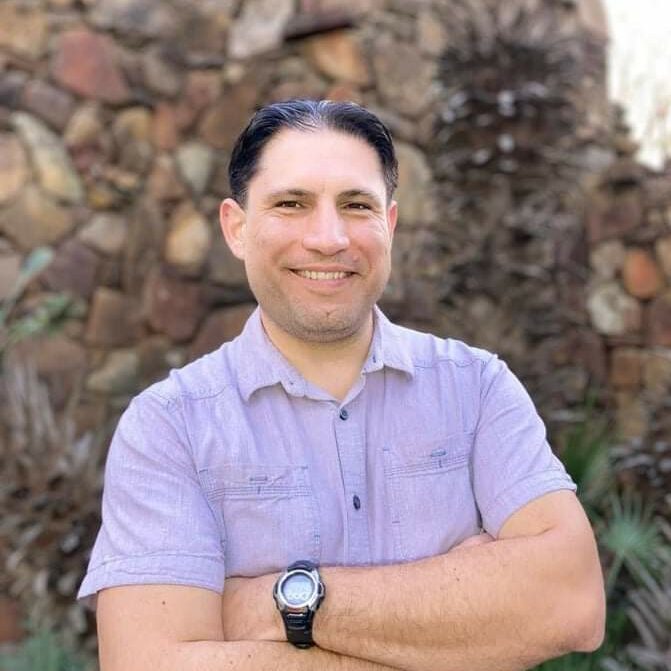Counseling psychology is a specialized field within professional psychology that focuses on training mental health practitioners to help people feel better, function better, and engage more healthily with the world around them.
Generally speaking, counseling psychology programs prepare graduates to address their clients’ current mental health concerns and provide the education and support to prevent future ones from developing.
Here’s an example of prevention: A counseling psychologist can partner proactively with an individual on positive coping strategies to help them move through a tough situation, such as a divorce or another challenging event. This can help prevent the individual from developing unhealthy coping behaviors that could make their life even more difficult.
A counseling psychologist can work with a client on recovering from an eating disorder or help a family that’s navigating grief and loss. Of course, the particular challenges and concerns that a counseling psychologist can address depends on their training and experience.
Counseling Psychologists’ Education and Training
Becoming a counseling psychologist requires a doctoral degree and licensure from the state where the clinician practices. Some psychologists may pursue a terminal master’s degree (the highest degree achievable in a field or discipline) before going on to pursue a doctorate. Others may start their doctoral studies after completing their undergraduate degree.
Becoming a licensed psychologist also requires supervised clinical experience. Often these experiences happen both during the doctoral program and after it. The latter may be called a “postdoc” (postdoctoral) residency or fellowship. Different states mandate different amounts of clinical hours, the APA notes that most require between 1,500 and 2,000 clinical hours overall.
Some of the skills and techniques that counseling psychology graduates learn and practice include:
- Offering individual, family, and group counseling and psychotherapy
- Providing counseling in crisis, disaster, or trauma
- Assessing and diagnosing psychological disorders
- Providing proactive, public education to help prevent or reduce unhealthy dynamics in schools, workplaces, and families
- Monitoring and evaluating the client’s progress
- Conducting research within their focus areas
- Developing new research methodologies
A Counseling Psychologist’s Approach to Care
In general, counseling psychologists pay attention to people’s development across their lifespan. Their approach often takes into account that a person’s behavior is influenced both by individual, internal factors (e.g., their psychology, physical health, and spirituality) and contextual, external factors (e.g., their family, society, and culture).
Each psychologist has a theory-informed toolbox that includes different approaches or different types of therapy, to help their clients. For example, one might practice psychodynamic psychotherapy, guiding people in uncovering hidden motivations and desires behind problematic behavior. Another may use a cognitive-behavioral approach, helping people change unhelpful thinking and behavior patterns.Some counseling psychologists practice from multiple approaches, which may be called eclectic psychotherapy or integrative psychotherapy.
According to the APA, counseling programs often further equip graduates to become culturally informed and culturally sensitive therapists. This means the provider can work well with, respond effectively to, and provide support to people of all cultural backgrounds—although some may choose to specialize in working with certain subpopulations.
What combination of skills and techniques a psychologist uses is influenced by their training, experience, and preferences. “It just really depends on the psychologist,” says Taylor Hayden, a Christian and clinical therapist with Grow Therapy.
For instance, some psychologists may lean more toward assessing and diagnosing disorders; others may focus more on psychotherapy. Some do both, and others do neither.
“I know some psychologists who are very strictly assessment-based,” says Hayden. “What they love doing is diagnosing. They love figuring out what’s causing a person to be stuck.”
Of course, the client’s concerns, needs, and goals also factor into the specific skills and techniques that a counseling psychologist puts to work. If you’re seeking psychotherapy with a psychologist, that’s why it’s important to ask each provider about their own unique approach. As a starting point, Grow Therapy’s “Find a Therapist” tool can help you narrow down your list of potential providers using filters for specialty, identity, location, and more.
Counseling Psychology and Clinical Psychology: Similarities and Differences
As the American Psychological Association (APA) puts it, “similarities abound” between counseling psychology and clinical psychology programs. Graduates of both programs can become licensed as psychologists in all 50 states. However, the programs themselves may offer different, though overlapping, training.
In fact, two psychologists, Robert Morgan and Lee Cohen, set out to understand what exactly makes these two spheres different. Morgan earned his Ph.D. in counseling psychology, and Cohen earned his Ph.D. in clinical psychology. To do so, they analyzed recruitment materials from 61 counseling psychology programs, 137 clinical Ph.D. programs, and 34 clinical Psy.D. programs.
Here’s what they found: Clinical and counseling psychology programs had no major differences, at least in the program descriptions, faculty characteristics, and experience requirements. The one difference they noticed was that clinical psychology programs tended to emphasize psychopathology training and external practice opportunities, while counseling psychology programs tended to emphasize cultural competencies and a more holistic education.
The APA adds that counseling psychologists tend to focus on “overall well-being across the lifespan,” while clients of clinical psychologists may be experiencing “more severe symptoms” of mental health challenges or conditions.
So, what do these insights mean for people who want or need therapy? The Society of Counseling Psychology sums it up this way: If you’re seeking psychotherapy with a psychologist, you need to ask the psychologist, whether clinical or counseling, to describe their training, approach to care, and current style of practice.
How Counseling Psychologists Can Help
Counseling psychologists may work in hospitals, health centers, private practices, educational settings, corporations, and research institutions. Generally, they can help people recognize their strengths, learn to better cope with everyday challenges, and treat mental health concerns that may be happening. What follows are several specific ways that counseling psychologists can help clients.
Improving Well-Being
Counseling psychologists support their clients with both the “everyday challenges” of work, relationships, and family—and more serious concerns that affect our mental health and well-being. Whatever the concerns, the counseling psychologist’s goal is to help the individual navigate when life is difficult and find resources—both in themselves and within their communities—to build resilience and healthy, fulfilling lives.
Strengthening Academic Performance and Confidence
Some counseling psychologists serve in school settings, and they may work alongside educational psychologists in helping shape the learning experience. They may work with students’ families, helping the adults understand how they can create supportive learning environments at home based on their children’s unique strengths and needs. They may partner with students and educators as well, helping both groups better engage together during the school day.
Promoting Healthy Workplaces
Some companies employ mental health providers to support employees’ mental health. Workplace psychologists, or industrial and organizational psychologists, can help colleagues better collaborate and support individuals in navigating tricky workplace dynamics and addressing any concerns they have, such as burnout or feeling anxious or disengaged. They may offer on-site or virtual workshops, work one-on-one with employees, or provide targeted training for teams or managers.
Fostering Healthy Relationships
To put it simply, people aren’t born with relational skills. Everyone has to learn how to engage well with others and with their environments. However, not all families or community groups teach these skills. That’s where counseling psychologists can step in. They’re able to understand the dynamics at play and teach individuals, couples, and groups how to have healthy, fulfilling relationships.
Processing Past and Present Trauma
Counseling psychologists are equipped to help people in active crisis situations, and they can help people and communities process past traumatic events. Their support can help mitigate the psychological effects of traumatic events and begin the healing process.
Adding to Psychological Research
Licensed counseling psychologists hold doctoral degrees—which means they have experience in contributing to clinical research, although this may vary from program to program. Some counseling psychologists also engage in research that helps us better understand particular mental health issues, contexts, or therapeutic techniques.
Finding a Mental Health Provider
Counseling psychologists and other mental health professionals use their specialized skills to help people heal, grow, recover, and navigate the complexity of their emotional and psychological well-being. These providers can partner with clients in working through immediate concerns and crises. They can also empower people to develop positive coping strategies, build resilience, and understand themselves more deeply.
Whether you’re seeking immediate or long-term support, a mental health provider can be an invaluable resource—and Grow Therapy is a great place to start your search. Our “find a therapist” feature is easy to use and lets you browse providers based on your state, insurance provider, and the provider’s specialty.

